Amazon Alternatives: Shopping Local & Ethical
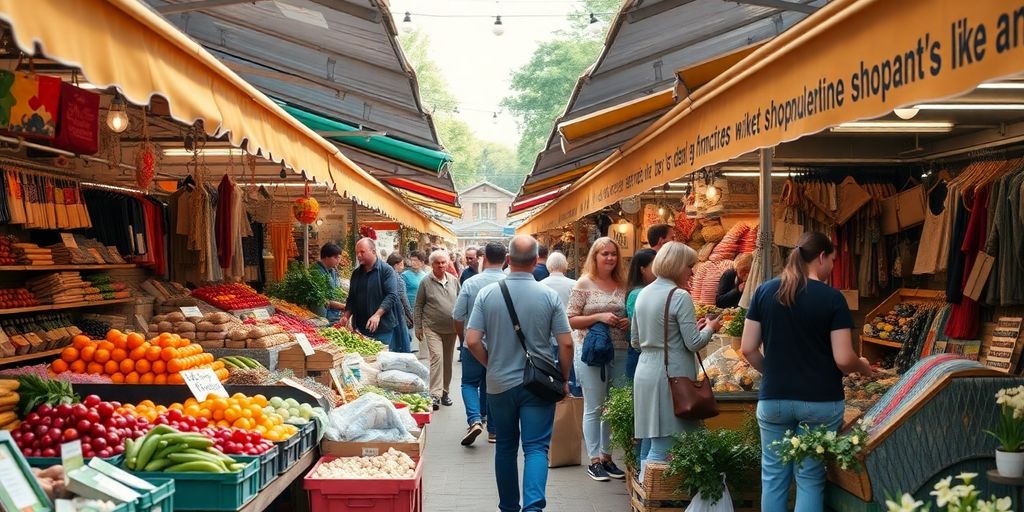
If you’re tired of the same old online shopping routine with Amazon and want to make a change, you’re in the right place. There are plenty of local and ethical alternatives that not only provide great products but also support communities and the environment. In this article, we’ll explore various options that let you shop with a conscience, from local markets to online retailers that prioritize sustainability. Let’s dive into some options that can help you shop smarter and more ethically!
Key Takeaways
- Shopping local helps strengthen community economies.
- Ethical online retailers offer sustainable and fair products.
- Farmers’ markets provide fresh, local food options.
- Independent bookstores support local authors and artists.
- Buying refurbished electronics is eco-friendly and budget-friendly.
Exploring Local Marketplaces
Benefits of Shopping Local
Shopping local isn’t just a feel-good activity; it’s a smart move for your community and your wallet. When you spend your money at local businesses, a significant portion of that revenue stays within the community, supporting schools, infrastructure, and other vital services. Plus, local businesses often offer unique products and personalized service you just can’t find at big box stores. It’s about building relationships and investing in the place you call home. Think about it, you’re not just buying a product; you’re buying into a community.
Supporting Community Economies
Local businesses are the backbone of a thriving community. They create jobs, pay local taxes, and are more likely to support local charities and events. Choosing to shop local invests in ethically run companies strengthens the economic fabric of your neighborhood. It’s a ripple effect: your purchase helps the business owner, who then hires local employees, who then spend their money at other local businesses. It’s a virtuous cycle that keeps your community vibrant and resilient.
Here’s a quick look at how local spending can make a difference:
- Increased tax revenue for local services
- More jobs within the community
- Greater support for local charities and initiatives
Shopping local is about more than just transactions; it’s about building a stronger, more connected community. It’s about investing in the people and places that make your neighborhood unique and vibrant.
Finding Local Artisans
Discovering local artisans is like uncovering hidden gems in your own backyard. These talented individuals pour their heart and soul into their craft, creating unique, high-quality products you won’t find anywhere else. Here are a few ways to connect with local artisans:
- Attend local craft fairs and markets: These events are a great way to meet artisans in person and see their work firsthand.
- Check out local boutiques and galleries: Many of these businesses feature the work of local artists and craftspeople.
- Use online directories and social media: Platforms like Etsy and local Facebook groups can help you find artisans in your area.
Supporting local artisans supports independent artisans not only gives you access to one-of-a-kind products but also helps these talented individuals pursue their passion and contribute to the cultural richness of your community.
Ethical Online Retailers
It’s easy to get stuck in the Amazon cycle, but there are actually a bunch of cool online stores that are doing things the right way. They focus on fair labor practices, eco-friendly materials, and giving back to communities. It might take a little extra digging, but it’s worth it to support businesses that align with your values. Plus, you might discover some unique products you wouldn’t find on the usual big sites.
Sustainable Fashion Brands
Finding clothes that are both stylish and sustainable can feel like a challenge, but there are some great brands out there making it easier. These companies prioritize using organic cotton, recycled materials, and ethical production methods. They’re transparent about their supply chains, so you know exactly where your clothes are coming from and who’s making them.
- Look for certifications like GOTS (Global Organic Textile Standard) or Fair Trade.
- Consider brands that offer clothing repair services to extend the life of your garments.
- Check out companies that use innovative materials like recycled plastic bottles or plant-based fabrics.
I’ve been trying to build a wardrobe with pieces from sustainable brands. It’s not always the cheapest option, but I feel good knowing that my clothes aren’t contributing to environmental damage or unfair labor practices. It’s a slow process, but I’m happy with the progress I’m making.
Eco-Friendly Home Goods
Your home should be a sanctuary, and that includes making it an eco-friendly one. There are tons of online retailers specializing in sustainable home goods, from furniture made from reclaimed wood to organic cotton bedding. You can find everything you need to create a healthy and environmentally conscious living space. Consider ethical alternatives to Amazon for your home.
- Look for products made from natural, renewable materials like bamboo, cork, or jute.
- Choose items with minimal packaging or packaging made from recycled materials.
- Support companies that donate a portion of their profits to environmental causes.
Conscious Beauty Products
The beauty industry can be a major source of waste and harmful chemicals, but there’s a growing movement towards cleaner, more ethical products. Many online retailers now offer a wide selection of conscious beauty brands that prioritize natural ingredients, sustainable packaging, and cruelty-free practices.
- Read labels carefully and avoid products with parabens, sulfates, and phthalates.
- Look for brands that use recyclable or biodegradable packaging.
- Support companies that are transparent about their ingredients and sourcing practices.
Food and Grocery Alternatives
Farmers’ Markets and Co-ops
I love hitting up the farmers’ market on Saturday mornings. It’s way more than just grabbing groceries; it’s about connecting with the people who actually grow your food. You can find the freshest produce, and it’s a great way to support local farmers directly. Plus, you can often find unique items you won’t see in a regular store, like artisanal cheeses or homemade jams. Don’t forget about food co-ops either! They’re like community-owned grocery stores that focus on local and sustainable products. It’s a win-win.
Shopping at farmers’ markets and co-ops not only provides access to fresh, local produce but also strengthens community bonds and supports sustainable agriculture practices.
Organic Delivery Services
Okay, so maybe you’re not a morning person or just don’t have time to browse the market. That’s where organic delivery services come in handy. There are tons of options now, from companies that focus on reducing food waste to those that partner with local farms to bring you the freshest seasonal produce. I used to get a box from Sale Trending that specialized in "ugly" produce – you know, the stuff that supermarkets reject because it doesn’t look perfect. It was a great way to save money and help reduce food waste. Plus, it forced me to get creative in the kitchen!
Here are some benefits of using organic delivery services:
- Convenience: Groceries delivered right to your door.
- Freshness: Often sourced directly from local farms.
- Reduced Food Waste: Some services specialize in rescuing imperfect produce.
Ethical Grocery Stores
More and more grocery stores are prioritizing ethical and sustainable practices. Look for stores that focus on fair trade products, support local farmers, and have strong environmental policies. Some stores even have programs where they donate a portion of their profits to local charities or environmental organizations. It’s all about making informed choices and supporting businesses that align with your values. For example, you can find ethical online retailers that offer a wide range of food and grocery products, making it easier to shop consciously from the comfort of your home.
Here are some things to look for in an ethical grocery store:
- Fair Trade Certification: Ensures farmers receive fair prices for their goods.
- Local Sourcing: Supports local economies and reduces transportation emissions.
- Sustainable Practices: Look for stores with strong environmental policies, such as reducing plastic waste and conserving energy.
Books and Media Options
It’s easy to just head to Amazon for your next book or movie, but there are actually a bunch of cool alternatives that support smaller businesses and ethical practices. Let’s explore some options that go beyond the usual suspects.
Independent Bookstores
There’s nothing quite like browsing the shelves of a local bookstore. These stores are hubs for community and culture, offering curated selections and personalized recommendations you won’t find online. Plus, you’re directly supporting local business owners and their employees. Many independent bookstores now have online shops too, so you can still shop from home while supporting your favorite local spot. Consider supporting local bookstores for your next read.
Secondhand Book Platforms
Why buy new when you can give a pre-loved book a new home? Secondhand book platforms are a great way to save money, reduce waste, and discover hidden gems. Sites like Better World Books not only offer affordable prices but also donate books to literacy programs worldwide. It’s a win-win! Plus, you might find a rare edition or a signed copy for a fraction of the price. World of Books also delivers new and used books for free, and donates books to schools and literacy programs worldwide. They also use recyclable packaging, recycles 80 million books a year, and pledges carbon neutrality.
Digital Media Alternatives
If you’re an avid audiobook listener, check out Libro.fm. This platform shares profits from your audiobook purchases with the local bookstore of your choice. It’s a fantastic way to enjoy the convenience of digital media while still supporting your community. For ebooks, Bookshop.org is releasing an ebook platform. Many local libraries also offer ebooks and can help with downloading and platform compatibility.
Consider exploring local library systems for free access to ebooks, audiobooks, and streaming services. Many libraries also offer digital resources like online courses and language learning programs, making them a great alternative to commercial platforms.
Crafts and Handmade Goods
Etsy and Similar Platforms
Platforms like Etsy and its peers bring a whole new level of creativity to shopping. These hubs connect buyers with makers who pour their passion into their work. These platforms put community and creativity first, making each purchase feel personal and impactful.
Below is a simple table comparing a few popular artisanal platforms:
| Platform | Community Focus | Sustainability Score |
|---|---|---|
| Etsy | High | 8/10 |
| Handmade Hub | Medium | 7/10 |
| Artisan Market | High | 9/10 |
If you’re thinking about trying one of these avenues, consider exploring sustainable platforms that echo the same community focus.
Local Craft Fairs
Local craft fairs offer a raw and personal experience you often don’t get online. Wandering among booths, you might find unique pieces and even chat with the artist behind the creation. Here are some reasons why hitting up a craft fair can be rewarding:
- Fresh, handcrafted items straight from the maker
- Personal interactions that build community ties
- An opportunity to witness creative processes firsthand
Attending a craft fair can completely shift your perspective on shopping—it’s not just about buying, but about connecting with the people in your community.
Supporting Artisans Directly
Buying directly from artisans cuts out the middleman and gives makers the credit (and support) they deserve. This approach benefits both you and the artisan by ensuring fairer pricing and a closer dialogue. Here’s how you can make it work:
- Visit local artist studios or small-market events.
- Ask questions and learn the story behind the work.
- Choose your favorite pieces, knowing your money goes directly to creators, helping sustain their craftsmanship.
Each option not only offers unique products but also nurtures the local ecosystem, keeping the spirit of handmade goods alive and strong.
Electronics and Tech Alternatives
It’s easy to fall into the convenience trap of buying all our electronics from one giant online retailer, but there are definitely other options out there. Let’s explore some ways to get your tech fix without supporting questionable business practices.
Refurbished Electronics Stores
Buying refurbished is a great way to save money and reduce e-waste. You can often find high-quality, gently used electronics at a fraction of the price of new ones. Plus, you’re giving a device a second life, which is good for the planet. I’ve had good experiences with a few different places, but it’s always a good idea to check reviews and warranties before you buy. You can find great deals on used electronics at many retailers.
Ethical Tech Brands
Some companies are trying to do things differently. They’re focusing on fair labor practices, sustainable materials, and designing products that last. These brands might cost a bit more upfront, but you’re investing in something that aligns with your values. It’s worth doing some research to find companies that are transparent about their supply chains and committed to making a positive impact.
Local Repair Shops
Before you rush out to buy a new gadget, consider getting your old one fixed. Supporting local repair shops keeps money in your community and reduces the amount of electronics ending up in landfills. Plus, you might learn a thing or two about how your devices work! I took my laptop to a local shop last year, and they were able to fix it for way less than it would have cost to replace it.
It’s tempting to just click ‘buy now’ on that shiny new gadget, but taking a few extra minutes to explore these alternatives can make a big difference. You can save money, support ethical businesses, and reduce your environmental impact all at the same time.
Charitable Shopping Initiatives
It’s cool to know that your spending can actually help others. There are more ways than ever to make sure your money is going to good causes, not just lining the pockets of some big corporation. With AmazonSmile ending, it’s a good time to explore other options.
Supporting Nonprofits
One of the most direct ways to shop charitably is by supporting nonprofits. Many organizations have their own online stores where you can buy merchandise, with all proceeds going directly to their programs. Think about it: you need a new t-shirt anyway, why not get one that supports a cause you care about? Plus, it’s a great conversation starter. You can also check out ethical consumer for more information.
Ethical Gift Giving
Gift-giving can be a minefield of consumerism, but it doesn’t have to be. Consider giving gifts that support a cause. Here are some ideas:
- Gifts that give back: Many companies donate a portion of their profits to charity for every purchase.
- Experiences over things: Instead of buying a physical gift, consider donating to a charity in the recipient’s name.
- Handmade items from artisans: Buying directly from artisans, especially those in developing countries, ensures they receive a fair price for their work.
Community Fundraising Events
Local community fundraising events are another great way to shop charitably. These events often feature local vendors and artisans, with a portion of the proceeds going to a local cause. It’s a win-win: you get to support your community and find unique, handmade items. Plus, it’s a fun way to bolster local businesses and meet your neighbors.
Shopping with a purpose can make a real difference. By being mindful of where your money goes, you can support causes you care about and help create a more just and equitable world. It’s not always the easiest path, but it’s definitely worth it.
Wrapping It Up: Choose Wisely
In the end, shopping local and ethical is all about making choices that feel right for you. It’s easy to get caught up in the convenience of big retailers like Amazon, but there are plenty of alternatives out there that support small businesses and ethical practices. Whether it’s finding unique gifts or everyday essentials, these local shops and online platforms can offer a more personal touch. Plus, you’ll feel good knowing your money is going to people who care about their products and their communities. So next time you’re about to click that ‘buy now’ button on Amazon, take a moment to explore these alternatives. You might just discover something special.
Frequently Asked Questions
Why should I shop locally instead of online?
Shopping locally helps support your community and local businesses. It also reduces the environmental impact of shipping goods long distances.
What are some benefits of choosing ethical brands?
Ethical brands often prioritize fair treatment of workers, sustainable practices, and environmentally friendly materials. This means your purchases can help make a positive impact.
How can I find local artisans and makers?
You can find local artisans by visiting craft fairs, farmers’ markets, or searching online for local shops that feature handmade goods.
Are there online stores that focus on sustainability?
Yes! Many online retailers focus on sustainable products, such as eco-friendly clothing, organic foods, and cruelty-free beauty items.
What are some good alternatives for buying groceries?
You can shop at farmers’ markets, join a co-op, or look for local grocery stores that offer organic and ethically sourced products.
How can I support charities while shopping?
You can support charities by purchasing from stores that donate a portion of their sales to nonprofit organizations or by participating in community fundraising events.
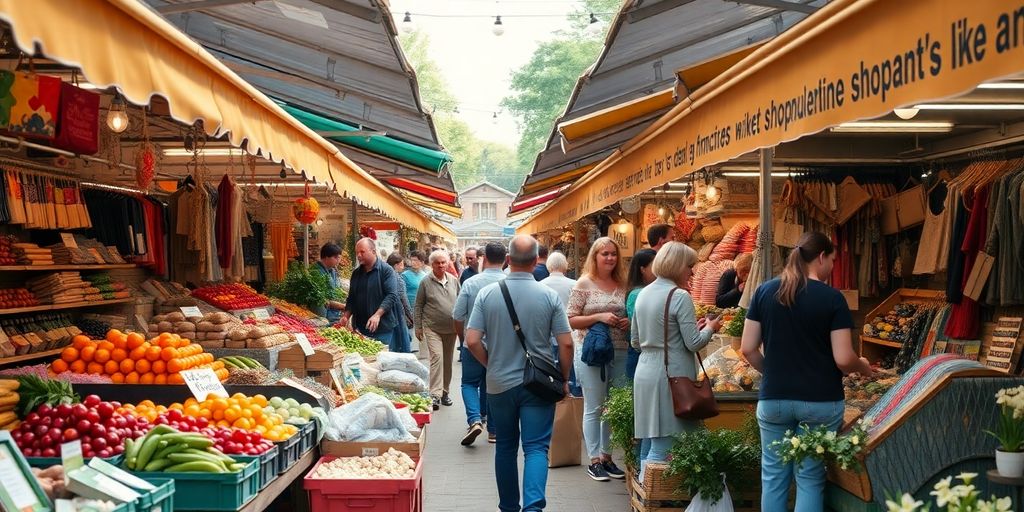
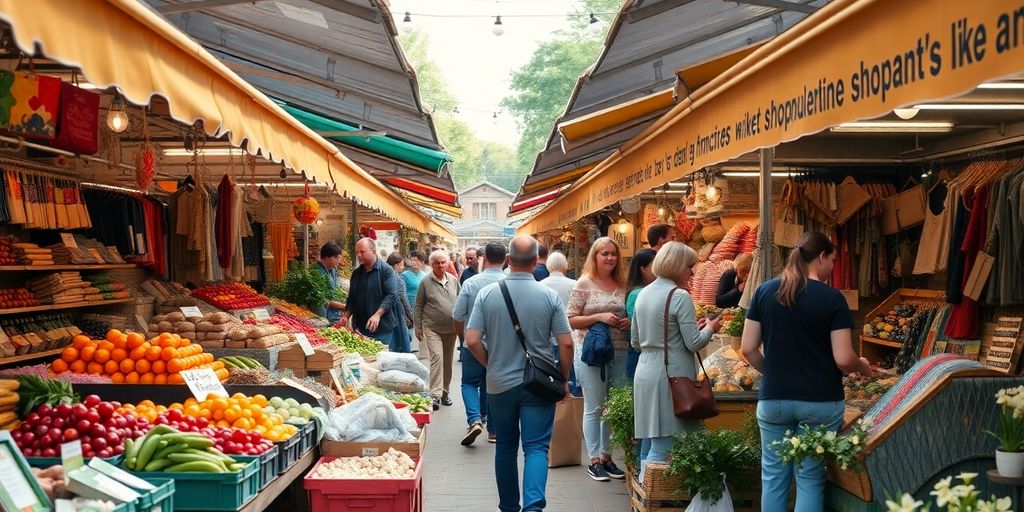
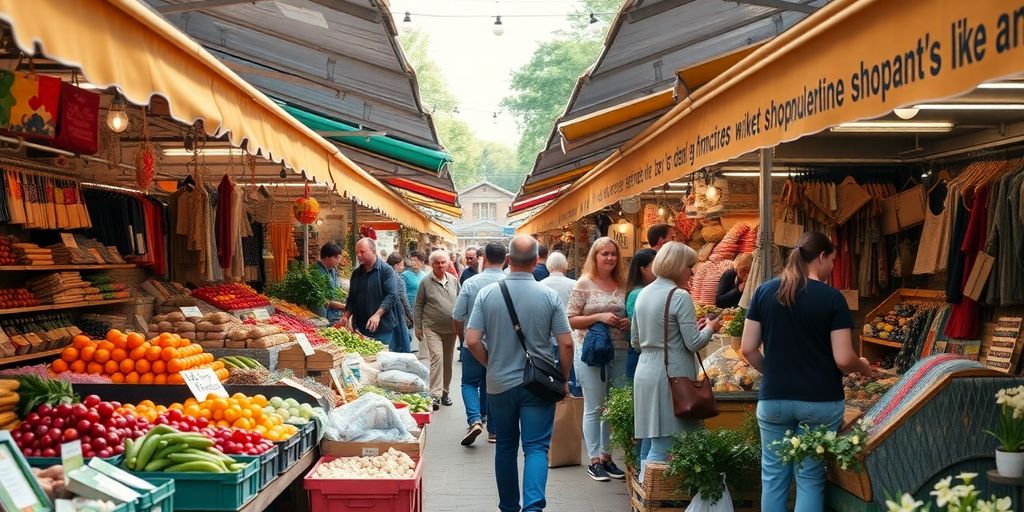



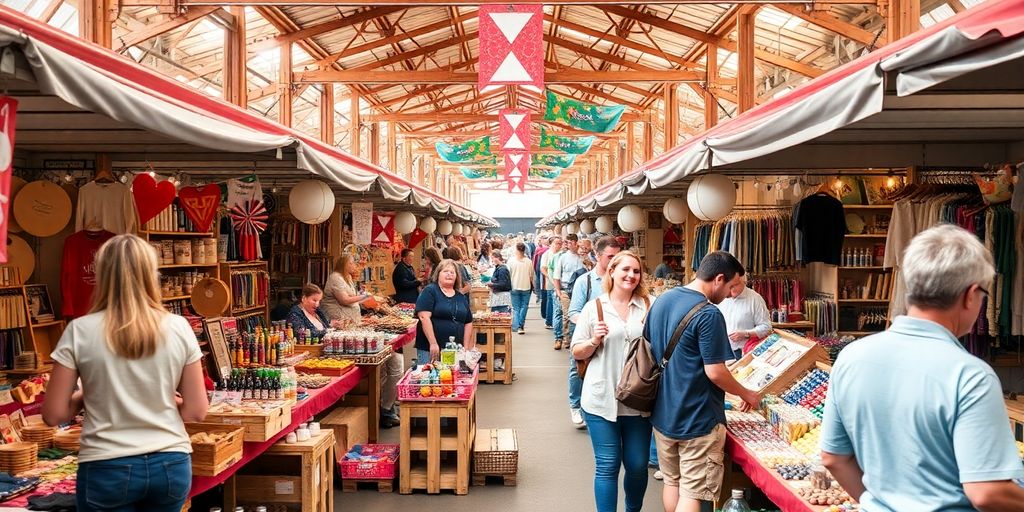
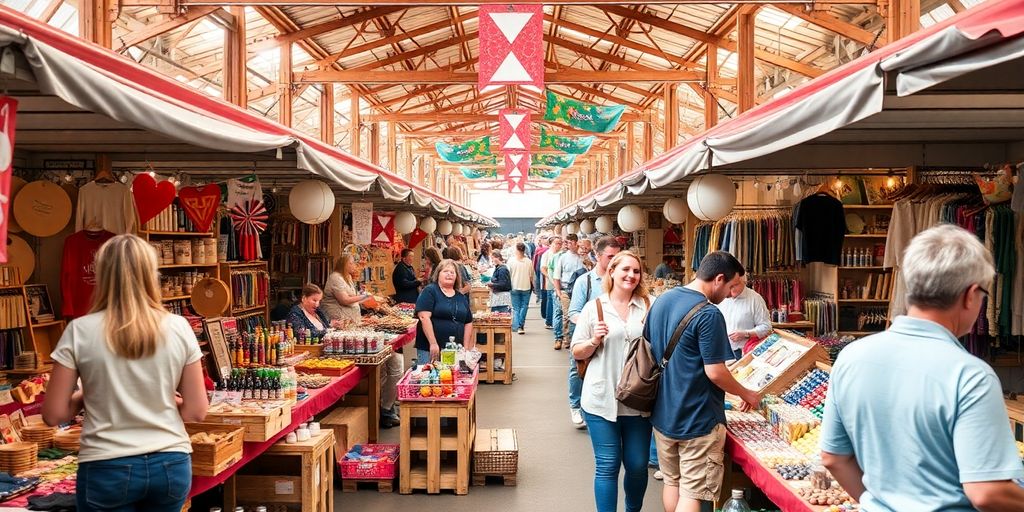
Responses